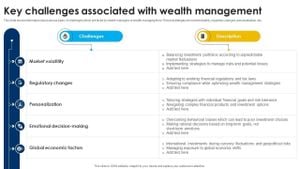The COVID-19 pandemic sparked widespread global responses, and as countries emerged from the crisis, the need for thorough inquiries became evident. The UK and New Zealand, both grappling with their health system's responses to COVID-19, have embarked on inquiries illuminating the strengths and weaknesses of their respective strategies. The revelations from these inquiries have not only shaped the narrative of individual nations but also provided insights for future pandemic preparedness.
New Zealand's government recently announced plans to withhold the findings of its COVID-19 inquiry until 2026. This decision has sparked considerable concern among experts and citizens alike, particularly as the report was initially expected to inform future pandemic responses. Critics are voicing concerns over the potential impact of this delay on how the nation prepares for future health crises. Given the high stakes, many argue this opacity leaves the country ill-prepared for the next outbreak.
Australia, New Zealand's neighbor and somewhat comparative case study, has been releasing findings from its COVID-19 inquiry. New Zealand and Australia recorded some of the lowest COVID fatality rates globally, both opting against strict preexisting pandemic plans and instead improvising as the virus spread. The Australian inquiry has underscored key lessons about minimizing harm during such crises, emphasizing the need for well-planned interventions rather than reactive measures.
One of the Australian report's core tenets is prioritizing the minimization of harm from both the disease and the measures taken to control it. The report suggests lockdowns were warranted initially due to uncertainty but also points to missed opportunities to rebalance approaches as vaccines rolled out. Experts advocate for investing now in health infrastructure and capacities to prevent similar pitfalls, reinforcing the idea of being proactive rather than reactive.
Specifically, the report highlights the importance of investing in health equity and infrastructure. These areas desperately need attention if New Zealand wishes to emerge stronger from this pandemic and be prepared for the next one. The Te Niwha report, another analysis referencing New Zealand's pandemic readiness, has echoed these sentiments by emphasizing the necessity of scientific and healthcare capacity for future responses.
Meanwhile, the UK COVID-19 Inquiry has been the subject of intense scrutiny, particularly concerning comments from former Northern Ireland health minister Robin Swann. Swann confessed during his testimony about the struggles faced due to insufficient planning during the pandemic’s early days. He noted the dramatic modeling predictions made early on, projecting up to 4,000 daily hospitalizations, which hit home the severity of the crisis. The inquiry has focused on the governmental and societal response to COVID-19, making it clear how much preparation could have shaped the outcomes.
Swann stated to the inquiry: "At the specific point of seeing the potential for 32,000 symptomatic cases daily, things became real for me and my executive colleagues.” His admission reveals the increasing sense of urgency as health officials encountered dire predictions and began framing their responses.
Despite the acknowledgment of these predictions, he noted shortcomings within the surge planning for hospital resources – especially concerning intensive care capabilities. Swann expressed his regrets about not asking the right questions during the planning phase when beds were running low, emphasizing, "If it [the surge plan] is not there then I didn't.”
He faced pressing questions about whether adequate plans were made to increase capacity, reflecting on how the system might have been overwhelmed had interventions not been implemented. His reflections reveal growing concerns among health officials about the adequacy of resources available to tackle potential crises. Assessments noted were often thought to have been paling versus reality, showcasing the longstanding issues within the health service infrastructure.
On another front, Swann has spoken against the notion of blanket “do-not-resuscitate” orders during the pandemic. He clarified there was no formal policy directing these orders based solely on age or disability, embracing nuance and ethical consideration. The inquiry's exploration of end-of-life decisions, and how these were originally managed, raised significant questions about the moral imperatives guiding decision-making during the acute phases of the pandemic.
Meanwhile, both inquiries are increasingly signaling the importance of transparency and accountability. With inquiries underway, stakeholders expect actionable insights about responsiveness to future health crises. For New Zealand, particularly, the delay in releasing its findings is raising alarms about the possible price of waiting too long to implement comprehensive strategies could lead to increased vulnerability to future pandemics.
Both countries are learning hard lessons from the past few years. The experience has highlighted the necessity of preparedness, communication, and the decisive action of health ministers, authorities, and governments to protect their populations against health crises. The challenges posed by COVID-19 have exposed severe vulnerability and inequities within health systems, underscoring the urgency for systemic reforms.
Funding and resources must align with the lessons gleaned from these inquiries; otherwise, society risks repeating history. Experts assert, “The next pandemic isn’t just possible—it might be on the horizon.” The warnings from health analysts and policymakers cannot be overstated, as the realities of climate change and human encroachment on natural habitats exacerbate the emergence of new pathogens.
Pathogens such as H5N1 and other threats have surfaced as potential future contenders for global outbreaks. Understanding which pathogens pose the highest risk and preparing health systems to adapt efficiently will be ever more important. We can't predict precisely what will trigger the next pandemic or when it may happen, but we certainly can prepare.
With Australia paving the way by releasing its findings and addressing weaknesses, New Zealand's hold on its inquiry results might limit its preparation for future challenges. Policymakers must recognize the role of transparency: keeping citizens informed and engaged guarantees stronger health safety nets. Through collaboration, nations can learn from each other's experiences, react faster, and build back their healthcare systems stronger than before.
Only time will reveal how effectively lessons learned from these inquiries shape the future health strategies of both nations. Yet, there remains hope. If both New Zealand and the UK include these lessons at the forefront of their strategies, they can transform vulnerabilities exposed during the pandemic to be systems of resilience for the next global health crisis.



